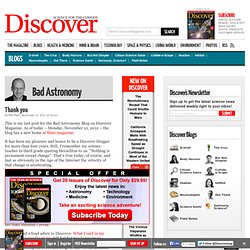

Skeptoid: Critical Analysis Podcast. Urban Legends Reference Pages. Global Warming and Climate Change skepticism examined. The Skeptic's Dictionary. Main Page. How To Sell Magic Beans.
One of the eternal questions for skeptics is – how can some people be so gullible?

We have a standard answer which captures many of the factors: poor understanding of science, lack of an innate sense of probability, all the various mechanisms of self-deception, and the strong desire to believe in certain things. Further, some cons are just slick, and anyone can be fooled by a clever-enough deception. But still, there are some claims that are so astoundingly gullible it’s difficult not to face-palm when confronted by them. One category of such claims is what I think of as the equivalent of magic amulets, or the magic beans from Jack and the Beanstalk. To believe in these magic amulets you either have to flat-out believe in magic, or you have to be so befuddled by science that it all seems like magic to you. For example, I have a new nutritional product that provides nutrition on the cellular level, with nano-sized micro and macro-nutrients.
Nicely done. Yep – those are magic beans. The Skeptic's Dictionary. Bad Astronomy. Well now, this is an interesting discovery: astronomers have found what looks like a "super-Earth" – a planet more massive than Earth but still smaller than a gas giant – orbiting a nearby star at the right distance to have liquid water on it!

Given that, it might – might – be Earthlike. This is pretty cool news. We’ve found planets like this before, but not very many! And it gets niftier: the planet has at least five siblings, all of which orbit its star closer than it does. Now let me be clear: this is a planet candidate; it has not yet been confirmed. The star is called HD 40307, and it’s a bit over 40 light years away (pretty close in galactic standards, but I wouldn’t want to walk there).
Massive planets tug on their star harder, so they’re easier to find this way. In this case, HD 40307 was originally observed a little while back by HARPS, and three planets were found. We don’t know how big the planet is, unfortunately. That’s exciting because of the prospect for life. Skepticblog. Science-Based Medicine. Skepchick - Pharyngula. Pharyngula. Probably not.

But the New York Times reports: A review of studies has found that the health benefits of infant male circumcision vastly outweigh the risks involved in the procedure. Actually, it doesn’t. Not at all. The paper is all about the frequency of circumcision in the US; this is the only real data in the paper, and notice that a good chunk of it is speculation. Prevalence of adult circumcision in the United States during the past 6 decades (1948-2010). It does toss in a table purporting to show the tremendous risks of not circumcising baby boys, but this is not new — these are the same sloppy data that the author has been peddling for over a decade. The author is Brian Morris, better known as the Man Who Hates Foreskins.
Take that first condition, the likelihood of urinary tract infections. Or look at his claim of much greater rates of HIV infection. Armed with this hunch, rather than set up a website I chose to do some research. Quackwatch. James Randi Educational Foundation. Home - The Skeptics' Guide to the Universe.